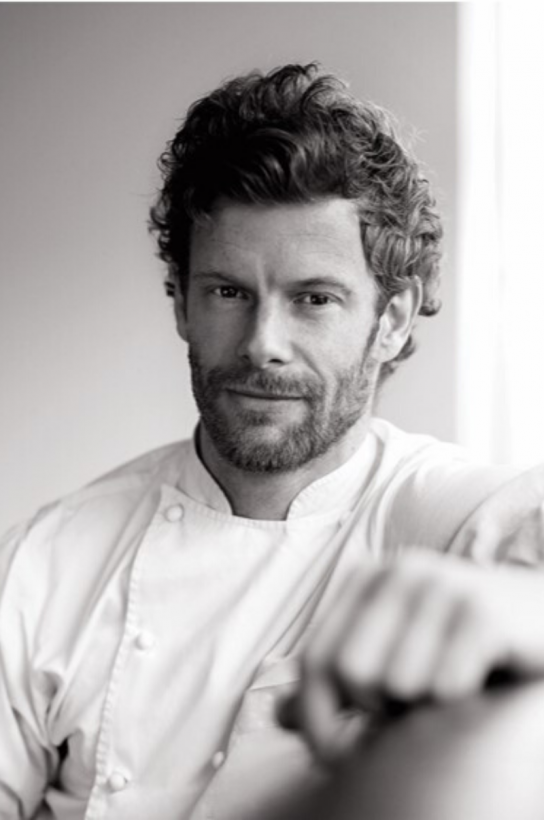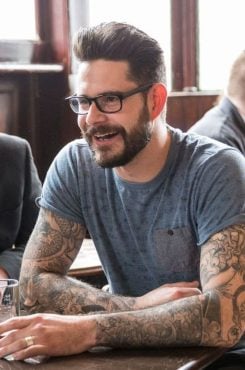Acclaimed chef Tom Aikens opened his 25-cover Belgravia restaurant Muse in January, marking his much-anticipated return to fine dining. Aikens shares the details of the site, why smaller scale doesn’t equate to less work and how the industry has changed in 25 years with CODE’s Harriet Prior.
Tell us a bit more about your latest project, Muse?
We opened a couple of months ago now in Belgravia. We serve dinner Tuesday to Saturday and lunch Tuesday to Friday, offering two tasting menus and a three-course lunch menu.
On the menu, there is no real information apart from three main components, so there is more of a story with each dish. We try to use interesting techniques in terms of cooking and presentation and there is some parts of nostalgia in relation to the story we tell. It’s just about trying to be as interesting and fun as possible.
How have guests responded to the menu?
People are really enjoying how the menu is portrayed, because it gives people an opportunity to be more inquisitive into what they are being served rather than knowing exactly what it is beforehand. It’s like giving people as many surprises as possible in terms of what they’re going to eat, how it’s prepared and what it looks like – the more surprises the better experience for the guests.
How have you found opening a restaurant on a much smaller scale?
We’ve only got 25 covers, but that doesn’t mean it’s any easier in terms of workload! We’ve got less chefs than before, but it means that the 25 covers all get really good service.
How has the industry changed since you first worked in restaurants?
I started in 1995 – there wasn’t all these rules and regulations that’s for sure! It was a bit of a Wild West situation I would say. There weren’t as many restaurants, so there wasn’t staff issues like we have now, but the hours we worked were huge. A large part of the problem we have now the way the market has been abused in terms of landlords hiking up ridiculous rents and rates and the staff shortages in London – it’s very difficult for entrepreneurial types to make enough money.
Would you recommend hospitality as a career?
I think the industry is definitely fascinating. People have to go in with eyes wide open – it’s an industry that has a reputation of being stressful, but on the upside (of which there are many), it’s an amazing industry where you are constantly doing something new and have the capability of using different ingredients, flavours and taste and hopefully having happy customers at the end of it.
There are a lot of interesting and exciting things that can take your career to different areas, be it food photography or event catering, so the industry has a lot to offer.
What advice do you have for those starting out in the industry?
There’s a level that kids today want to work to, in terms of the standards and the input they put in. Instead of looking at what can I get out of this, they need to think where they see themselves going and have a plan of action. Some people coming in to the industry have no idea where they see themselves going in the future – they have to have something tangible to work towards.
After you’ve done your training, that’s where the excitement starts. We’ve got to really try and inspire the younger generation and steer them in the right direction with what they want to do.
Where’s your favourite place for hospitality other than London?
I would say Paris.
For more Q&As and industry insights, subscribe to the CODE Quarterly magazine here



